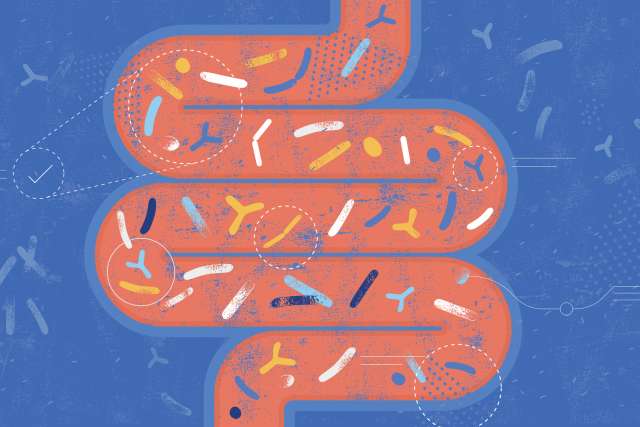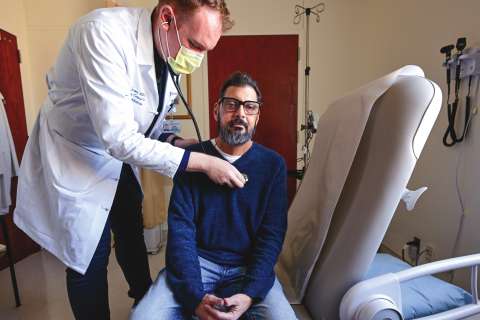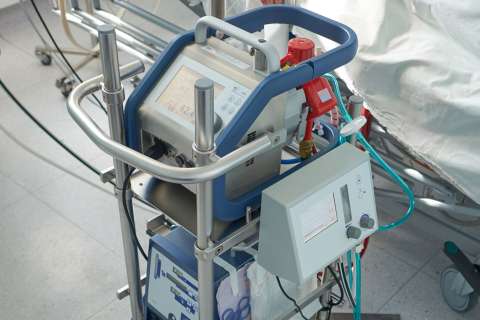A collaborative study by scientists from UCLA and USC may have unlocked new information about autism spectrum disorder (ASD) and the gut microbiome, the trillions of microorganisms living inside the intestines.
The study, recently published in Nature Communications, looked at the gut microbiome of kids with ASD, a condition that can make it difficult to understand social cues and interact with others.
In the study, children with ASD had fewer neuroactive metabolites, which are generated by gut microbes when they break down food components such as amino acids and complex carbohydrates to create energy and communicate with the nervous system.
Changes in the relative amounts of such metabolites may interfere with the signaling between the gut and brain, influencing emotions and associated behaviors.
Emeran Mayer, a distinguished research professor at UCLA’s Division of Digestive Diseases, contributed to the study along with co-senior author Jennifer Labus, PhD, an adjunct professor in the same department.
According to Dr. Mayer, the study results suggest that targeting the microbiome by altering the diet of ASD patients may help them have fewer symptoms, Dr. Mayer says.
What complicates things are the sensory sensitivities of a child with ASD that may restrict the variety of food they eat, Dr. Labus notes.
“The results suggest a need for further investigation of the benefits of novel probiotic or synbiotic (a combination of prebiotics and probiotics) treatments,” she says.
Studying the gut and brain
A total of 84 children and teenagers ages 8 to 17 took part in the study. Half of the participants met diagnostic criteria for ASD and half were neurotypical (NT), meaning they did not have autism.
For the study, Dr. Mayer and Dr. Labus collaborated closely with a USC research team, led by Lisa Aziz-Zadeh, PhD.
The researchers collected stool samples from the children and teenagers and performed detailed microbiome analyses on them. All participants also underwent functional and structural brain scans and comprehensive behavioral assessments.
Next, they looked for any differences related to microbial metabolites, brain activity and behavior as well as their interaction in the children and adolescents with a diagnosis of ASD compared to a control group of NT children.
Participants in the ASD group had significantly decreased levels of gut-derived metabolites compared to the NT group.
Kynurenin is the primary metabolite derived from tryptophan, an essential amino acid crucial to producing neurotransmitters such as serotonin. We obtain tryptophan via our diets, from sources such as poultry, fish and dairy, as well as soy and some nuts and seeds.
The reaction that breaks down tryptophan is known as the kynurenine pathway. The disruption of this reaction is linked to brain processing and cognitive changes, as well as neuropsychiatric diseases including depression.
“We found reduced concentration of kynurenate, which is in the kynurenine pathway,” Dr. Labus says.
The researchers found that lower concentration of metabolites such as kynurenine were associated with alterations in task-based brain activity of those in the ASD group, and these changes were correlated to increased severity and symptoms of the condition.
Looking to the future
Research has linked ASD and changes in the relative abundance of gut microbes and some of their metabolites. In addition, mouse studies have tied gut microbial metabolites to behaviors seen in people with autism.
But this was the first comprehensive assessment of alterations in the brain-gut microbiome system in patients with ASD, says Dr. Mayer.
“These findings suggest that certain gut microbial metabolites might impact autism symptoms by affecting brain function,” he says.
“While the study doesn’t prove that these gut metabolites directly cause changes in brain activity or symptoms, the results strongly support the possibility of a link,” he adds.
More studies are necessary, says Dr. Labus, including investigations of the role of the gut microbiome in the early stages of brain development.
This study’s results may make it possible to treat ASD in new ways, including with possible interventions targeted at the maternal microbiome and early postnatal microbiome.
New treatments would most likely not prevent ASD but would instead treat those who show symptoms.
According to Dr. Mayer, these results are an important step forward in understanding more about the role of the gut microbiome brain interactions in people with ASD.





